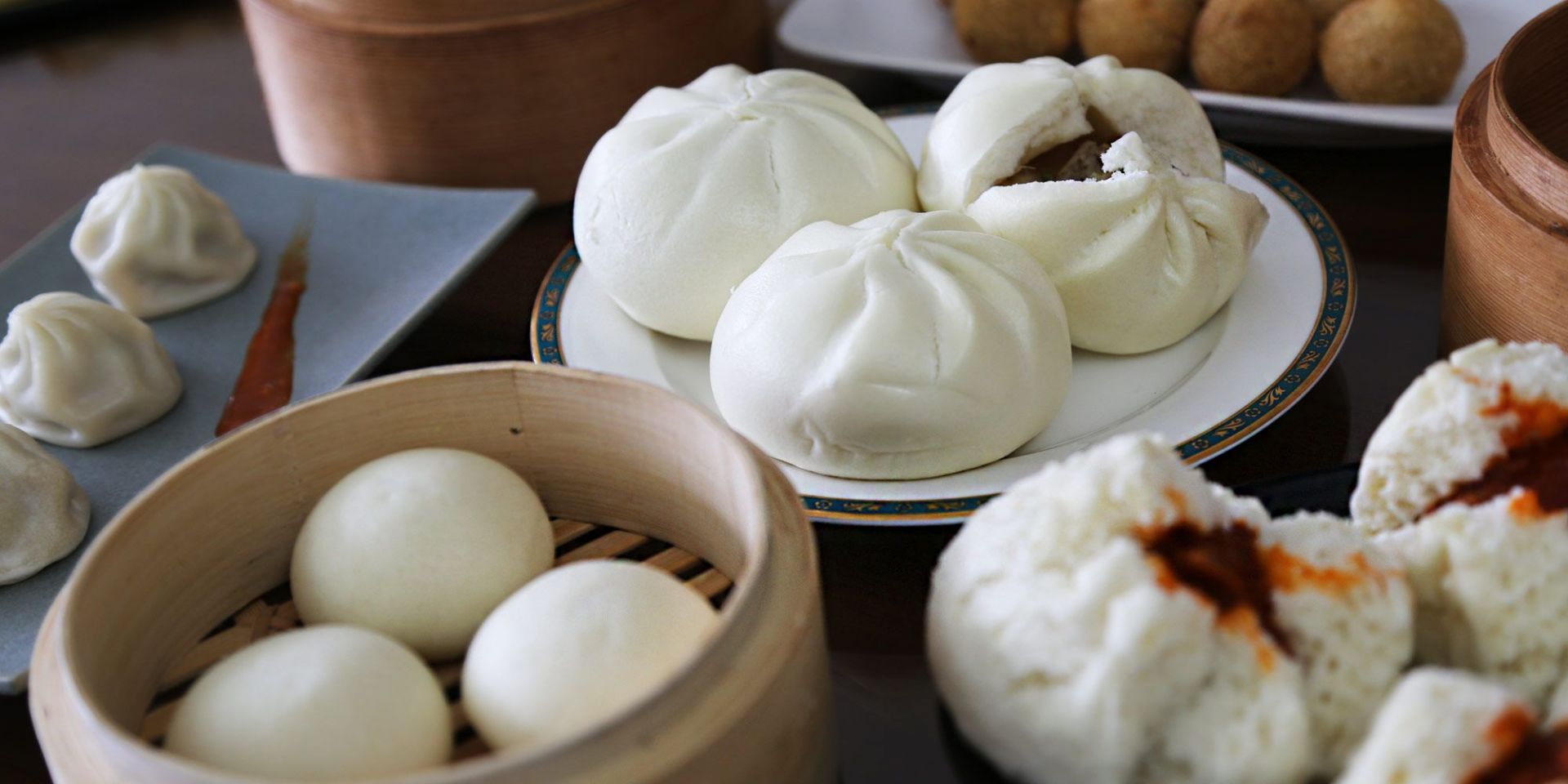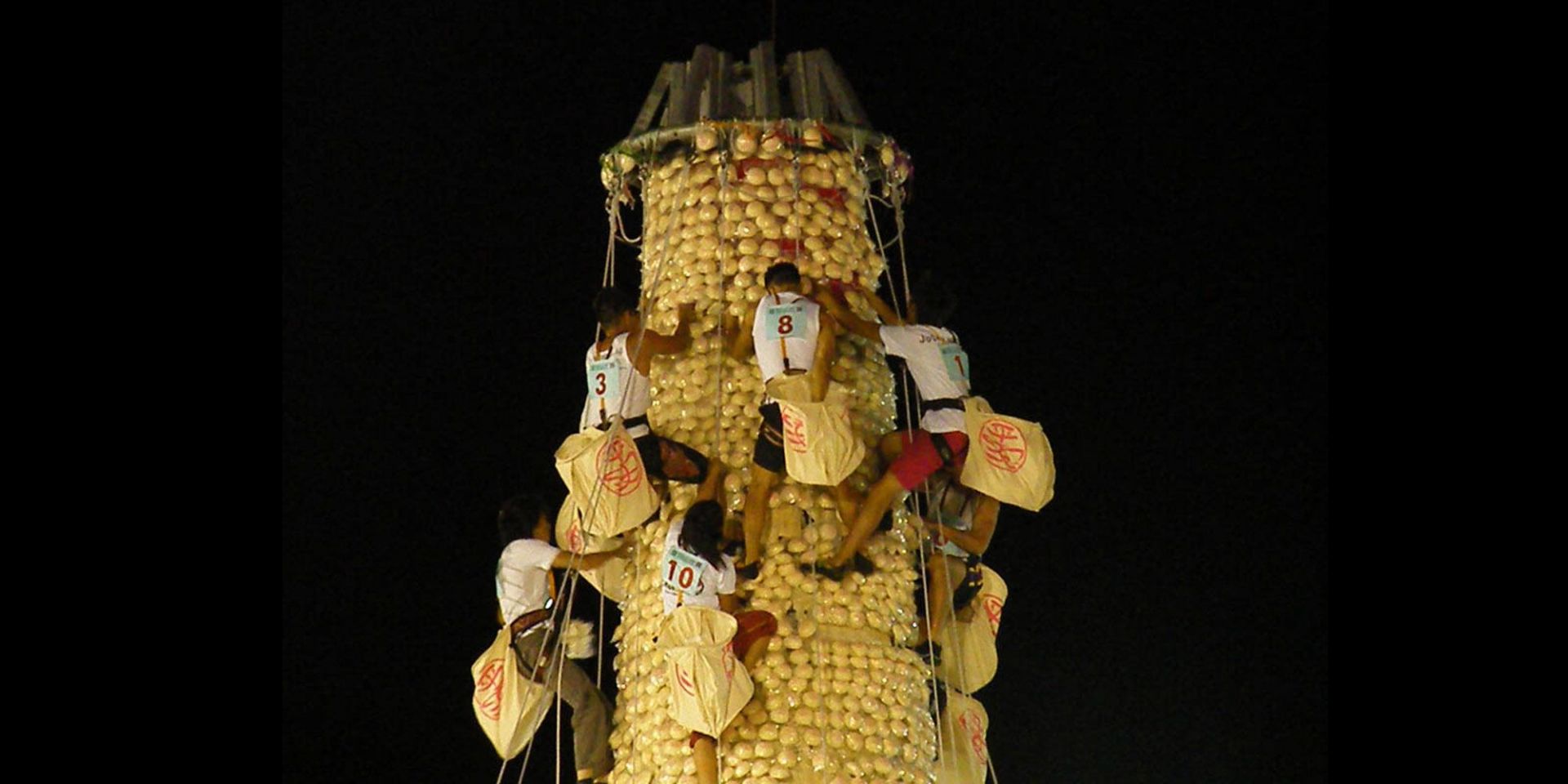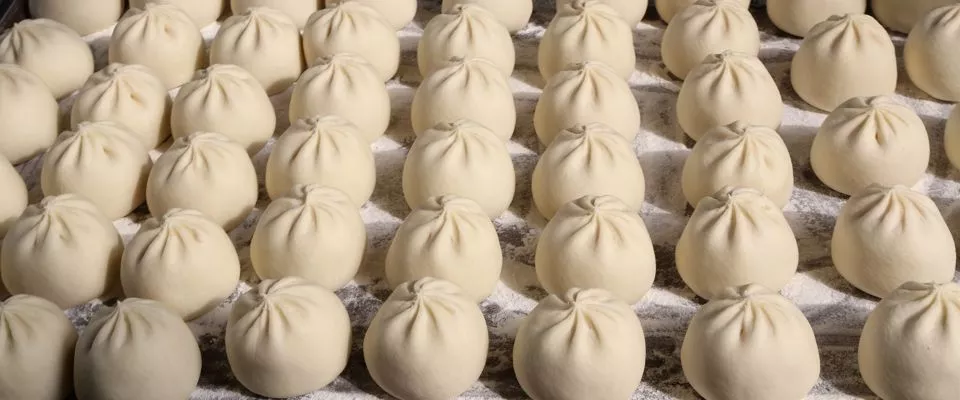Baozi, a great traditional dish of Chinese cuisine.
14 Jan, 2021In Chinese society, the development of a local culture usually comes with a delicious dish. Baozi, the commonly-seen food on the street, is one of the examples. Do you know how many traditions are related to baozi?
Baozi, or bao, the dainty and pillow-like steamed bread, commonly filled with minced meats and/or vegetables, could even be made into desserts with various sweet fillings; they are cooked in a hot steamer, consumed as a meal or simply as a snack. These little filled buns are indispensable in the Chinese Food Culture and have also won over the hearts and stomachs of many foodies around the globe.
Baozi is considered auspicious, since they are usually made pleasantly into round shapes, and are filled with all kinds of goodies. In certain regions in China, baozi is consumed over Chinese New Year, or during the last month of the Lunar Calendar as a tradition, when families gather and steam buns together as a household activity, and celebrate their joyous reunion. Back in the old farming days in Beijing, baozi was consumed before the heading stage in the rice paddy, for the blessings of a full harvest ahead; later on, at the beginning of Autumn, when the temperature starts to drop after the hot summer, juicy meat buns will be consumed for nourishment.
Moreover, in the Chinese speaking society, Baozi is often given as gifts for the newlyweds, as it hints "包生子" (pronounce: baoshengzi) meaning "guaranteed to have kids"; and the combo of "baozi" and "zhongzi" (粽子: sticky rice dumpling) symbolizes "包中" (pronounce: baozhong) meaning "guarantee to score" , are often sent as the "good luck yum" to friends and family that are taking exams and hoping to pass.
The Fun-Bun-Traditions don't just stop here, let's take a peek at what's more.
The One-Year-Old Catch: For Child's Brighter Future
"晬" (pronounce: zuì) is when the baby turns one-year-old, and the "catch" (抓周) is a traditional ceremony commonly practiced in the Minnan region (Fujian Province, Southern) and Taiwan, to celebrate the newborn's first birthday. On the day, oblation foods and "red tortoise rice cake" (a sweet rice pastry that symbolizes longevity) are prepared to worship the ancestors, and two baozi are for the child; one to wipe the mouth (to get rid of the baby sour milk smell) and the other for the rear end, hoping the kid will grow up with good health, tidiness, and popularity.
Dragon Boat Festival: Enjoy Baozi over Rice Dumplings

An important summer holiday in the Chinese community, when zhongzi (粽子: sticky rice dumpling that is wrapped in bamboo leaves and steamed) are being devoured; however, in certain provinces such as Sichuan and Yunnan, baozi are consumed instead; it may be due to the availabilities of the ingredients, since the festival is taken place around the wheat harvest season, and flour is more accessible than bamboo leaves. Nevertheless, hot steamed buns were also considered as holiday treats during the time of hardship, people usually share the buns for love, as they are also little prayers for a more abundant year to come.
New Boat Launching Ceremony in Nanfang'ao, Taiwan
On the east coast of Taiwan, Nanfang'ao is an important fishing port on the island, also known for its unique New Boat Launching traditions, and the most noticeable event of all is the "bao-throwing" ritual. Hundreds and thousands of baozi are thrown from the new fishing boat down to the crowd on shore for people to collect, whether, with umbrellas, buckets, or bags, the event is exciting, cheerful, and also believed to bring good luck and a bountiful harvest for the local fishermen.
Top 10 Quirky Local Festivals – TIME – Bun Festival (Cheung Chau, Hong Kong)
 (Photo from : Wiki)
(Photo from : Wiki)The Bun Festival in Hong Kong is taken place on the fishing island of Cheung Chau (長州), usually at the beginning of the 4th month of the lunar calendar. The event attracts swarms of locals and tourists to flood in and participate, waiting to witness the best climbers conquering the man-made mountains/tower of buns.
There are usually 3 large "mountains", each covered with around 6,000 sweet baos that are blessed and stamped with the characters of "peace and serenity" (平安). This tradition was formed on the island, it may have been related to the fact that the local fishermen were master mast-climbers on the boats; the purpose of the festival was to bring blessings and health to the villagers, however, it's been transformed into an annual sports game, even opened to overseas participants, and becoming an important tourism event for Cheung Chau, Hong Kong.

